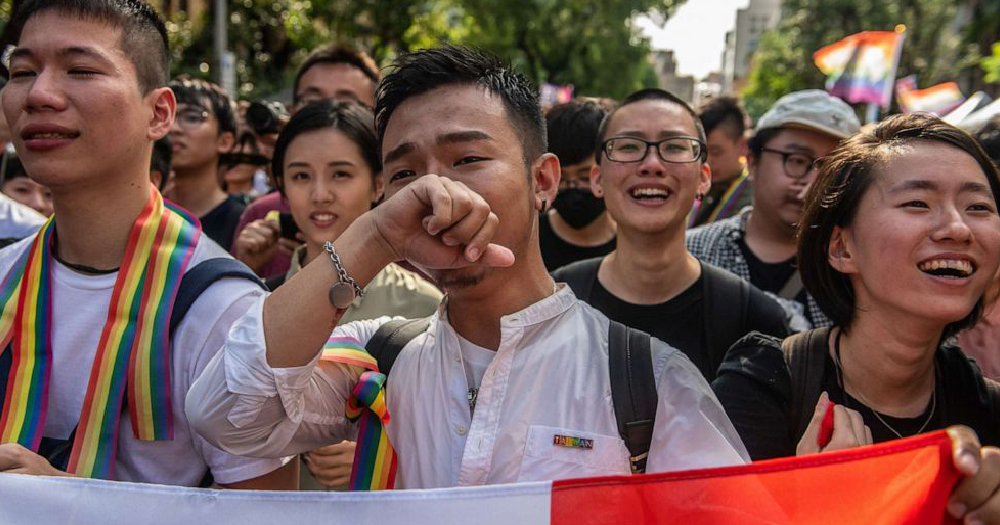It’s been four years since Ireland legalised same-sex marriage by popular vote in 2015 and twenty-six years since the decriminalisation of homosexuality in 1993. Whilst Ireland as a nation has come a long way in shifting attitudes towards the LGBT+ community and the ongoing battle for equality, there are still 71 countries that ban same-sex relationships.
These include large parts of Africa, Asia and the Middle East. Being LGBT+ in Afghanistan, Brunei, Mauritania, Yemen, Nigeria, Sudan, Somalia, Saudi Arabia and Iran is a crime punishable by death.
At present, nine countries openly issue the death penalty for homosexuality.
In Qatar, where Muslims make up approximately 67.7% per cent of the population, the death penalty only applies to Muslims.
In countries where homosexuality is banned but not punishable by death, members of the LGB+ community face punishments including flogging or imprisonment.
In countries like Vietnam, Madagascar and Venezuela, there are no specific laws against homosexuality but LGBT+ people continue to face high levels of discrimination and intolerance. Even in countries such as the United States, where same-sex marriage has been legal since 2015, shocking levels of hate crimes against LGBT+ people occur– for example, 53 transgender people were murdered from 2013 to 2015 and not a single person was prosecuted.
Countries in which LGBT+ people are considered to be most under threat include Iraq, Iran, Honduras, Uganda, Russia, Egypt and Nigeria.
There are currently 22 States in the world that recognise and provide for same-sex marriage.
Same-sex sexual acts are legal in 121 States, including 21 in Africa, 19 in Asia, 24 in the Americas, 7 in Oceania and 48 in Europe.
Same-sex sexual acts are illegal in 72 States. There are no European countries in which same-sex sexual acts are illegal.
Things are improving – albeit very slowly. Botswana, in Africa, overturned its ban on homosexuality in June 2019, and in May 2019, Taiwan became the first Asian country to legalise same-sex marriage. It is expected that several other Asian countries will follow suit in the coming years. In 2018, India’s Supreme Court made a landmark ruling decriminalising homosexuality in the country.
Of course, the decriminalisation of homosexuality and legalisation of same-sex marriage is only the beginning of the road towards true acceptance and equality. In many parts of the world, same-sex couples are not eligible for the same legal protections available to opposite-sex couples and many continue to face discrimination at school and in the workplace.
Anti-LGBT+ sentiments continue to exist in countries where homosexuality has long been considered ‘acceptable’. This includes in the United Kingdom, where a lesbian couple were beaten on a bus in Camden only last week after refusing to kiss for the entertainment of straight men. Also, last week, leading children’s charity NSPCC cut ties with Munroe Bergdorf, one of the UK’s most influential transgender activists. Bergdorf subsequently spoke out about how trans people in the UK are treated as second class citizens.
Occurrences like these signify that there is still quite a way to go until cultural attitudes towards LGBT+ people shift towards acceptance and equality, even in countries where legislation would suggest that LGBT+ are indeed ‘equal’. Likewise, they reinforce the necessity for LGBT+ Pride protests and celebrations to continue to take place worldwide.
© 2019 GCN (Gay Community News). All rights reserved.
Support GCN
GCN is a free, vital resource for Ireland’s LGBTQ+ community since 1988.
GCN is a trading name of National LGBT Federation CLG, a registered charity - Charity Number: 20034580.
GCN relies on the generous support of the community and allies to sustain the crucial work that we do. Producing GCN is costly, and, in an industry which has been hugely impacted by rising costs, we need your support to help sustain and grow this vital resource.
Supporting GCN for as little as €1.99 per month will help us continue our work as Ireland’s free, independent LGBTQ+ media.
